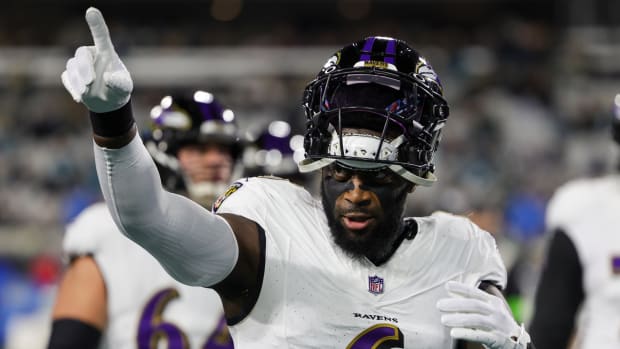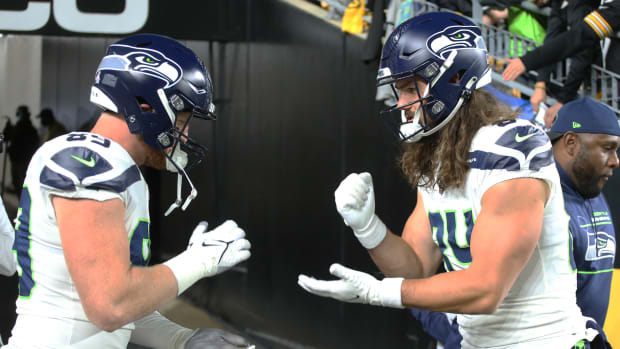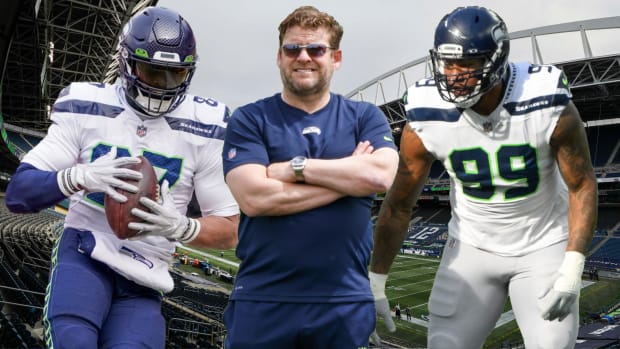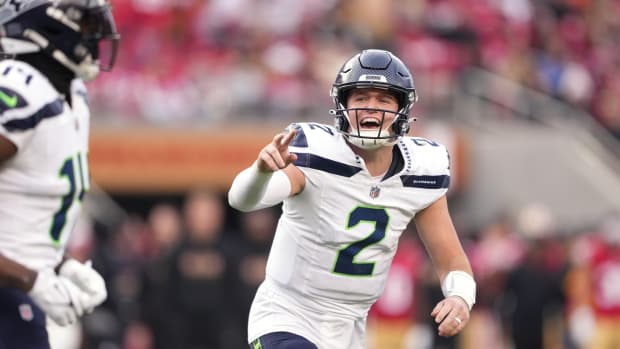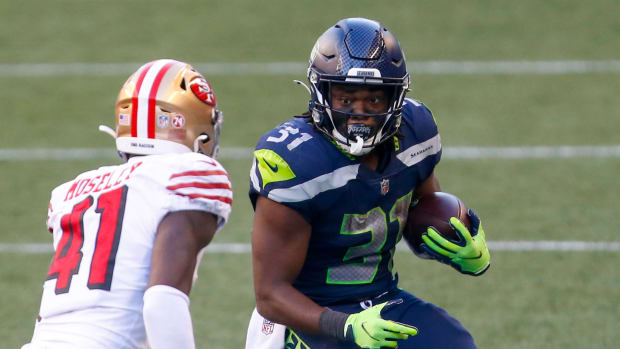5 Defensive Statistical Surprises in Seahawks Franchise History
Have you ever been scanning through the career stats leaders of your franchise and come across some truly surprising results? You probably have. For example, did you know that Jose Lopez has played the 10th most games in a Seattle Mariners uniform? I certainly didn't. But naturally, this led me to check the Seahawks record books, and there are some genuinely unexpected names that come up.
After looking on the offensive side of the ball, I'm going to revisit five surprising defensive factoids in different statistical areas in Seahawks history. Some are telling, most are just random trivia. But sometimes, to truly appreciate what you have, you need to understand what you left behind. With that in mind, let's get started.
1. The 2005 Seahawks rank fifth in fewest points allowed.
Known for their offensive efficiency and the brute force of Hall of Famers Walter Jones and Steve Hutchinson anchoring the offensive line, the 2005 Seahawks can boast that they've scored more points than any unit if franchise history. But that offensive unit, which included Matt Hasselbeck and MVP Shaun Alexander, overshadowed a very good defense that year.
Lead by middle linebacker Lofa Tatupu, the 2005 defense allowed the fifth-fewest points scored in franchise history. The unit didn't have a single player reach double-digit sack totals and still accumulated 50.0 sacks on the season.
2. The 1991 Seahawks rank fourth in fewest points allowed.
The 1991 Seahawks weren't all that memorable. They finished the season 7-9, but allowed fewer points than any unit in Seahawks history (with the exception of the strike-shortened 1982 season) until the "Legion of Boom" bested them three seasons in a row starting in 2012.
Anchored by Cortez Kennedy, Rufus Porter, and Jacob Green, Seattle allowed just four rushing touchdowns on the season, best in the league. They also got five interceptions from Eugene Robinson, who remains one of the most underappreciated players in team history. The 1991 Seahawks are the best non-Legion of Boom defense in franchise history, but the lack of victories leave them forgotten.
3. John Harris has the most interceptions in a single season.
If I asked you who holds the record for most interceptions in a season in Seahawks history, you may say Richard Sherman or Earl Thomas. Or you might say Hall of Famer Kenny Easley and you would be half right. Easley shares the record with John Harris, who manned the free safety position in Seattle for eight years in the late 1970s to mid-1980s.
In 1981, Harris would intercept 10, yes 10, passes, a record that would be tied by Easley just three seasons later. Overall, Harris picked off 41 passes for the Seahawks in eight seasons, just one pick behind Robinson for second all-time in franchise history.
4. Michael Sinclair ranks first in forced fumbles.
This fact may not be quite as surprising, as Sinclair was a great player. But what stands out about Sinclair is the volume of forced fumbles. From 1992 to 2001, Sinclair forced 25 fumbles, including a league-leading six of them in 1998. Next on the all-time list is Cliff Avril, who punched out 14 footballs.
That is a massive differential that cannot be ignored. Sinclair was almost twice as good at forcing fumbles as the next player on the list. Talk about being a "Ball Hawk".
5. Brandon Browner ranks first in single-season interception return yards.
With all the great secondary players in franchise history, one would expect this distinction to belong to Earl Thomas, Kam Chancellor, Kenny Easley, Dave Brown, or Richard Sherman. But in actuality, the record belongs to Legion of Boom founding member Brandon Browner.
In 2011, Browner returned six interceptions for a grand total of 220 yards, including two for touchdowns, capped by a 94-yard return for a score against the Giants. For good measure, Browner also led in the NFL that season with 23 passes defended, capping one of the most impressive rookie seasons by a corner in NFL history.
